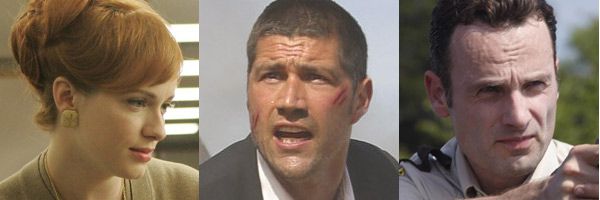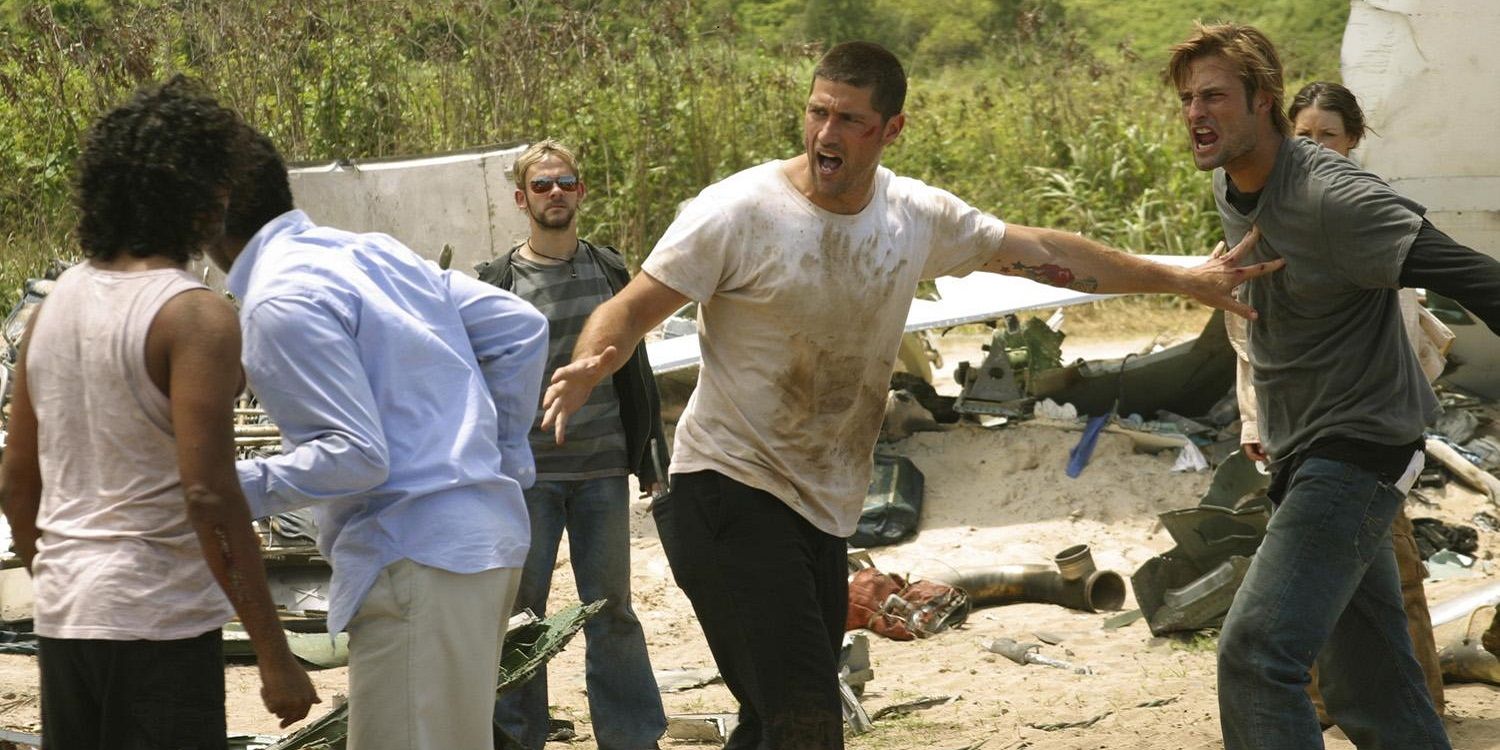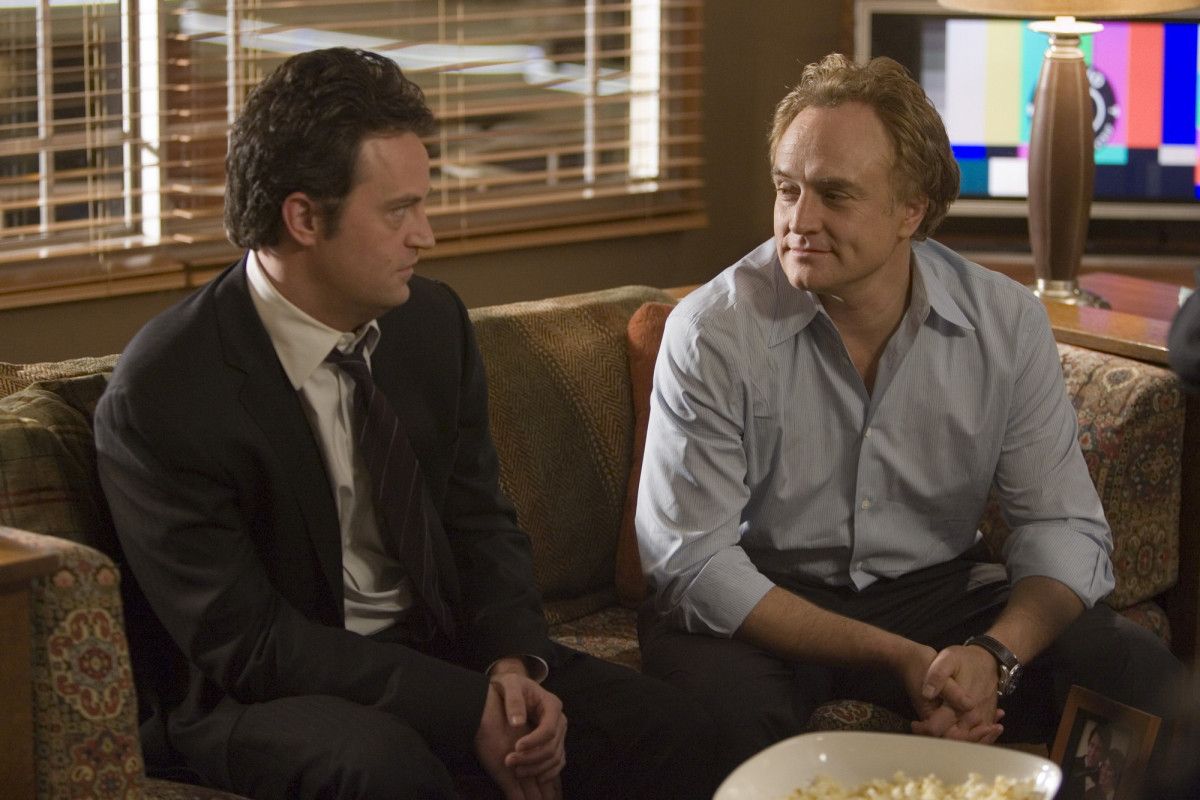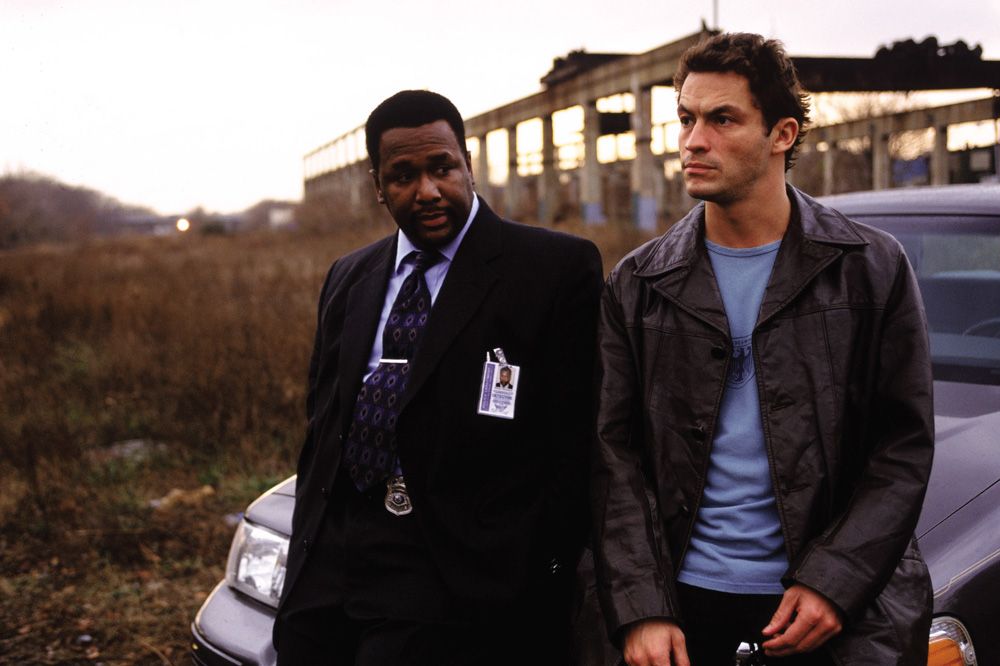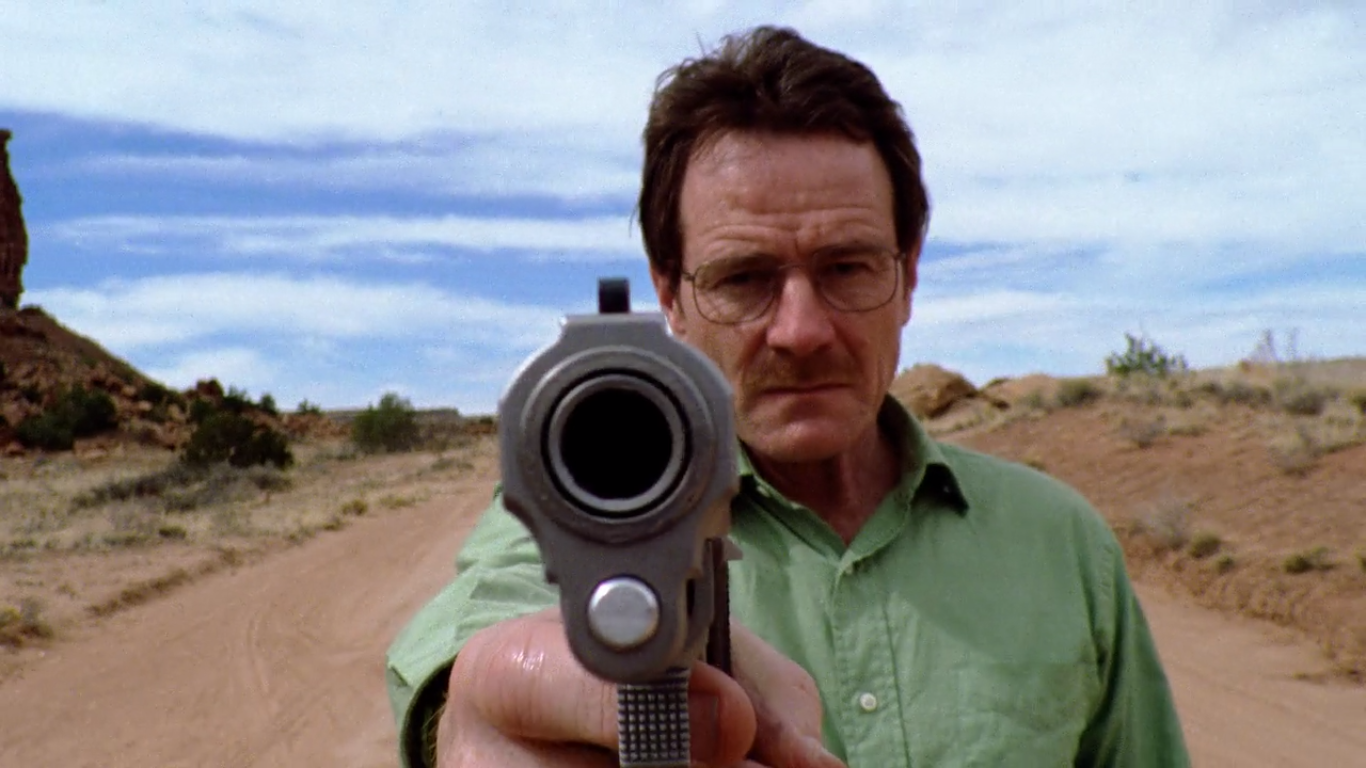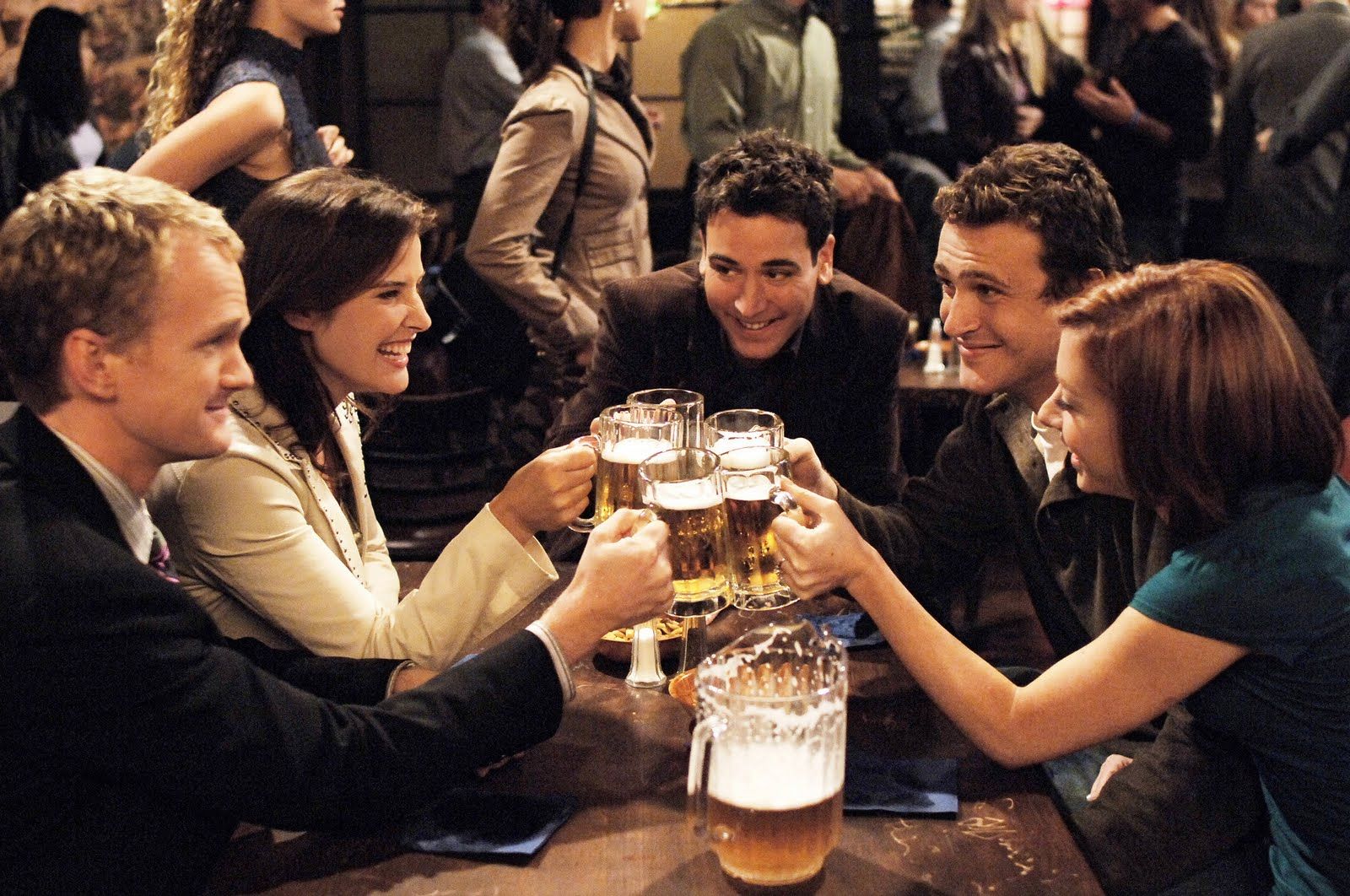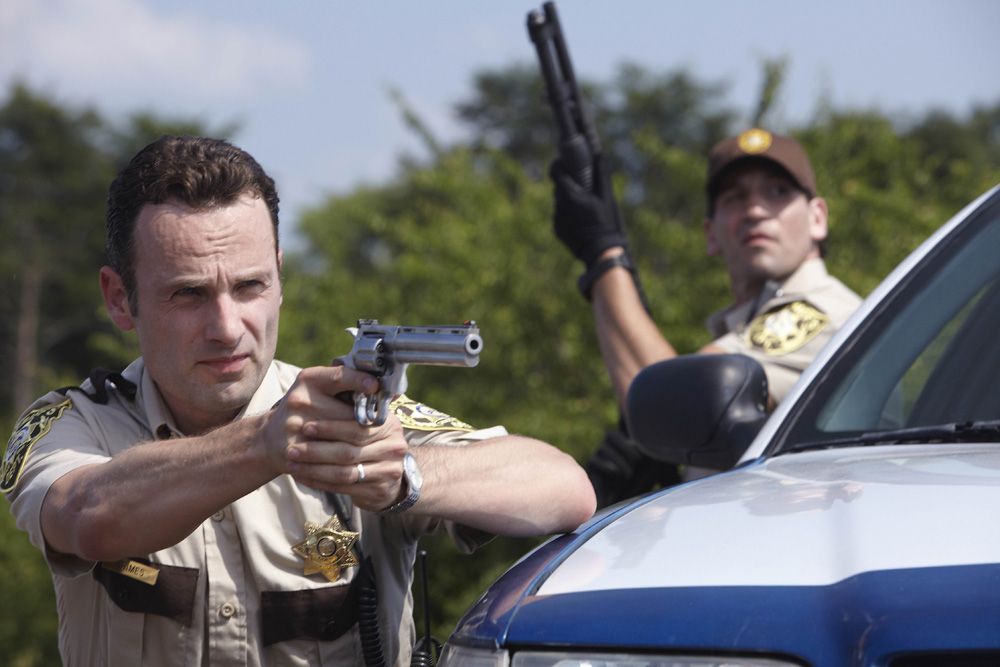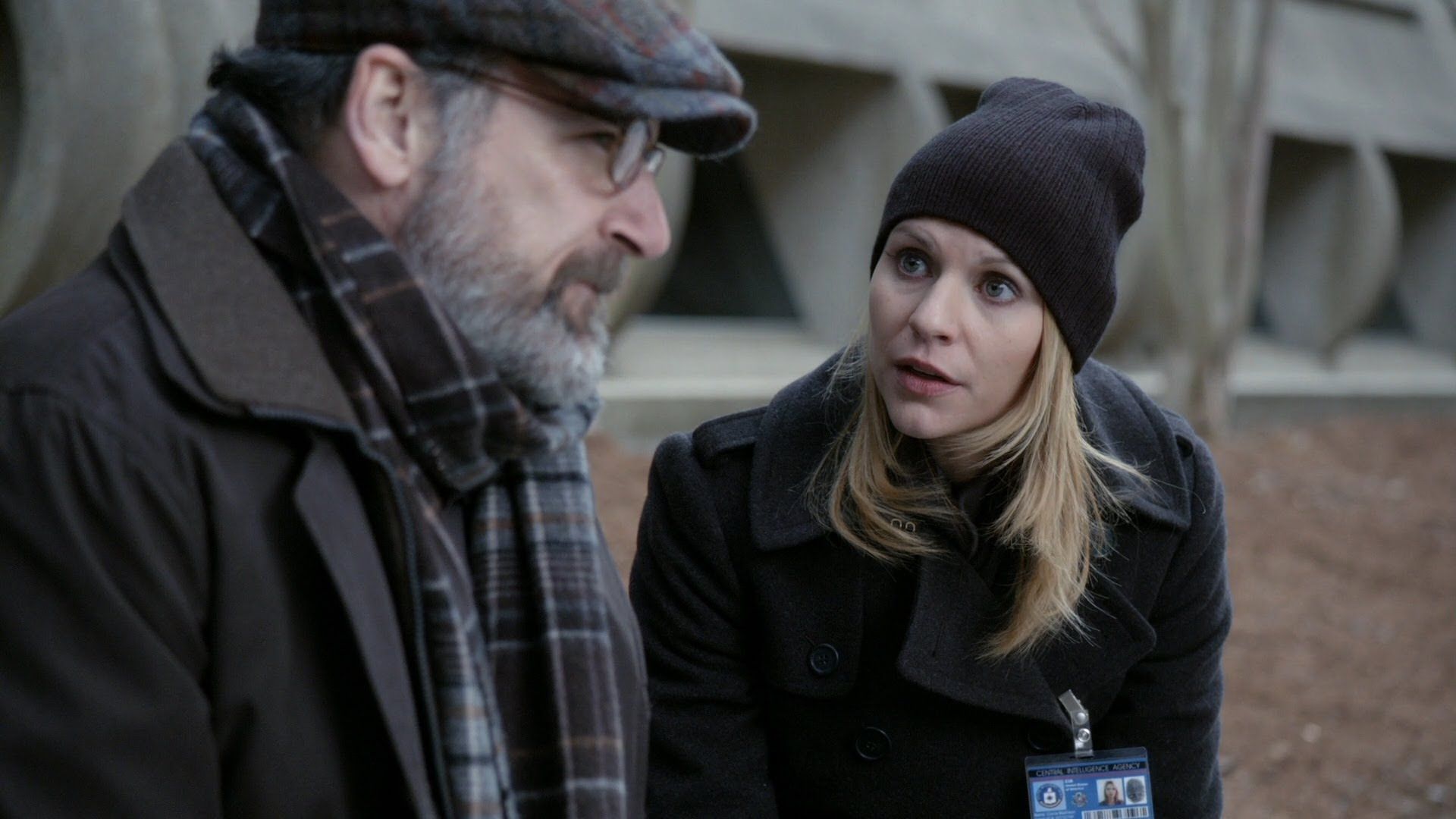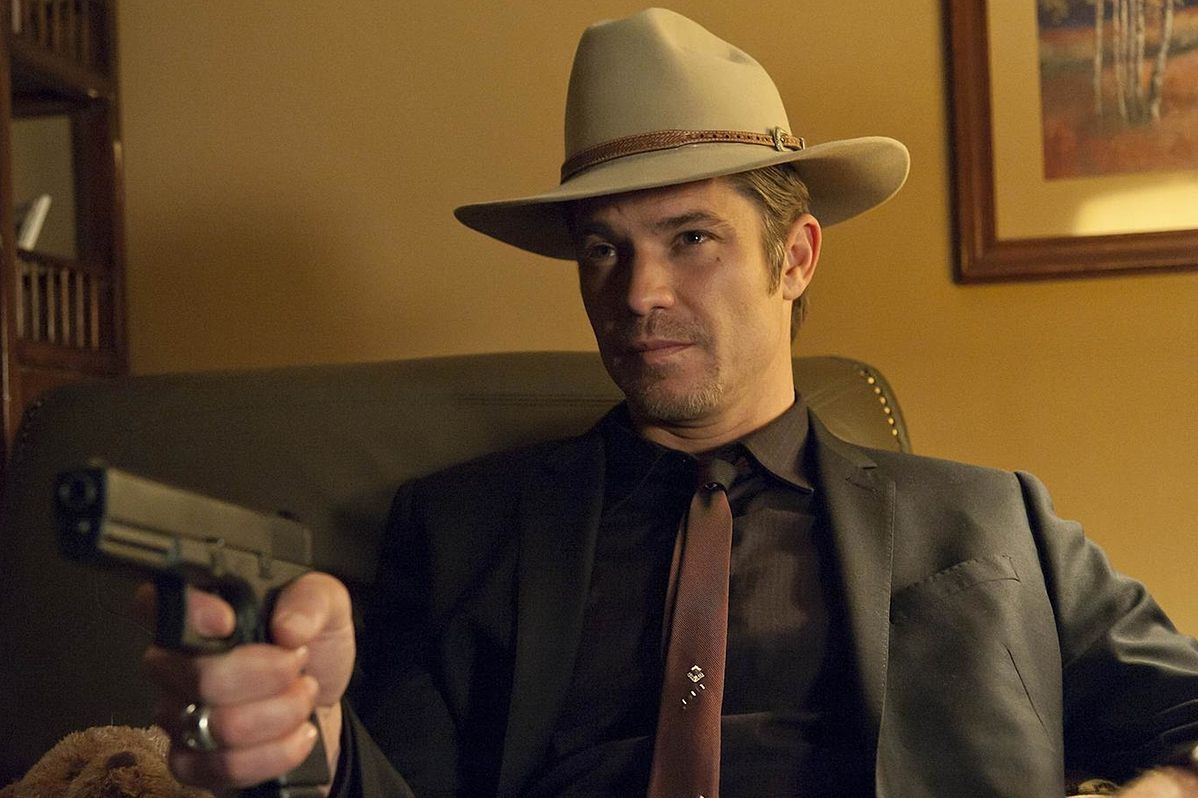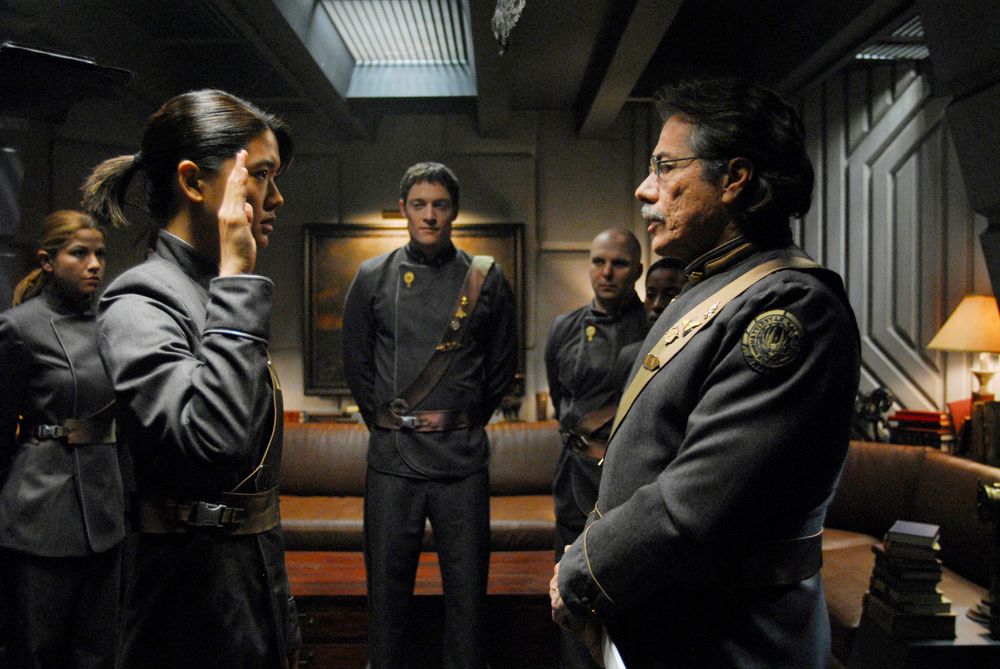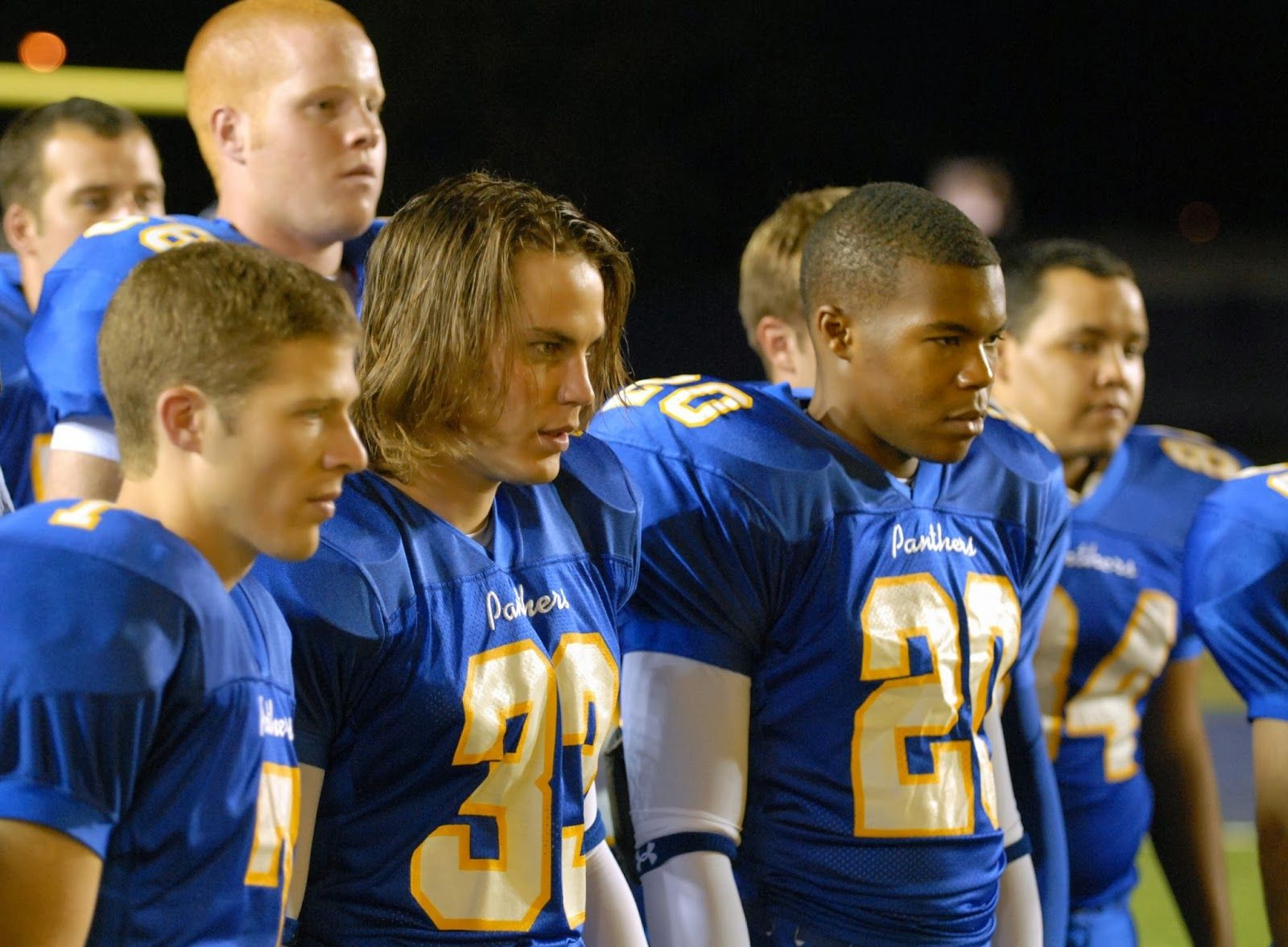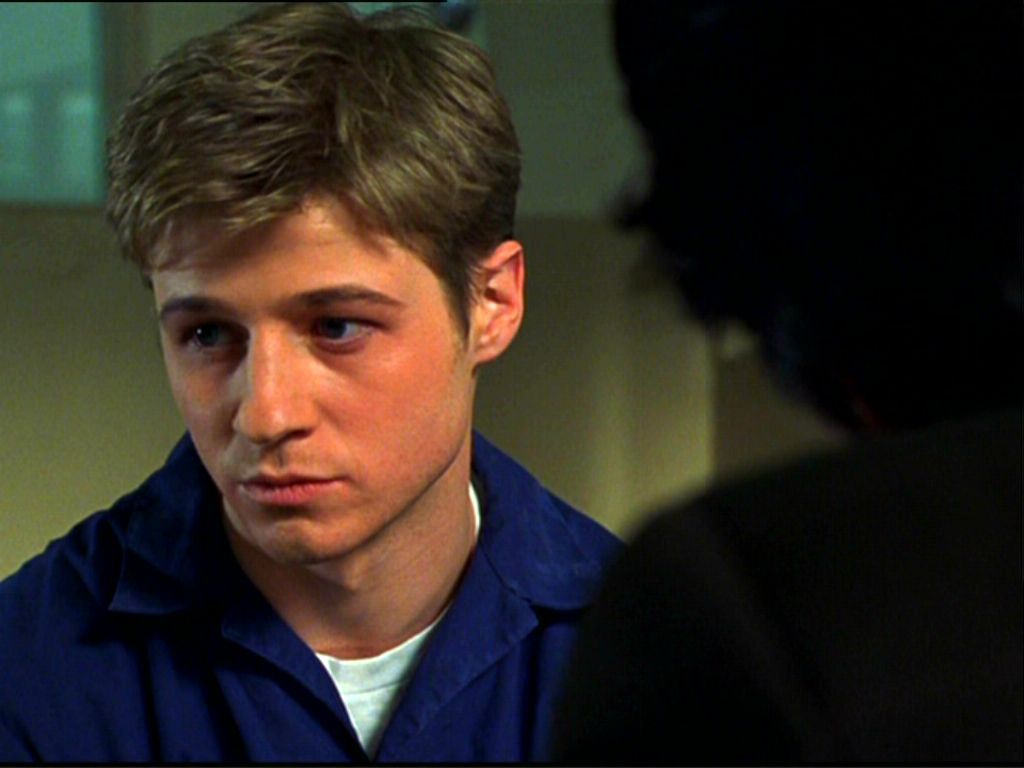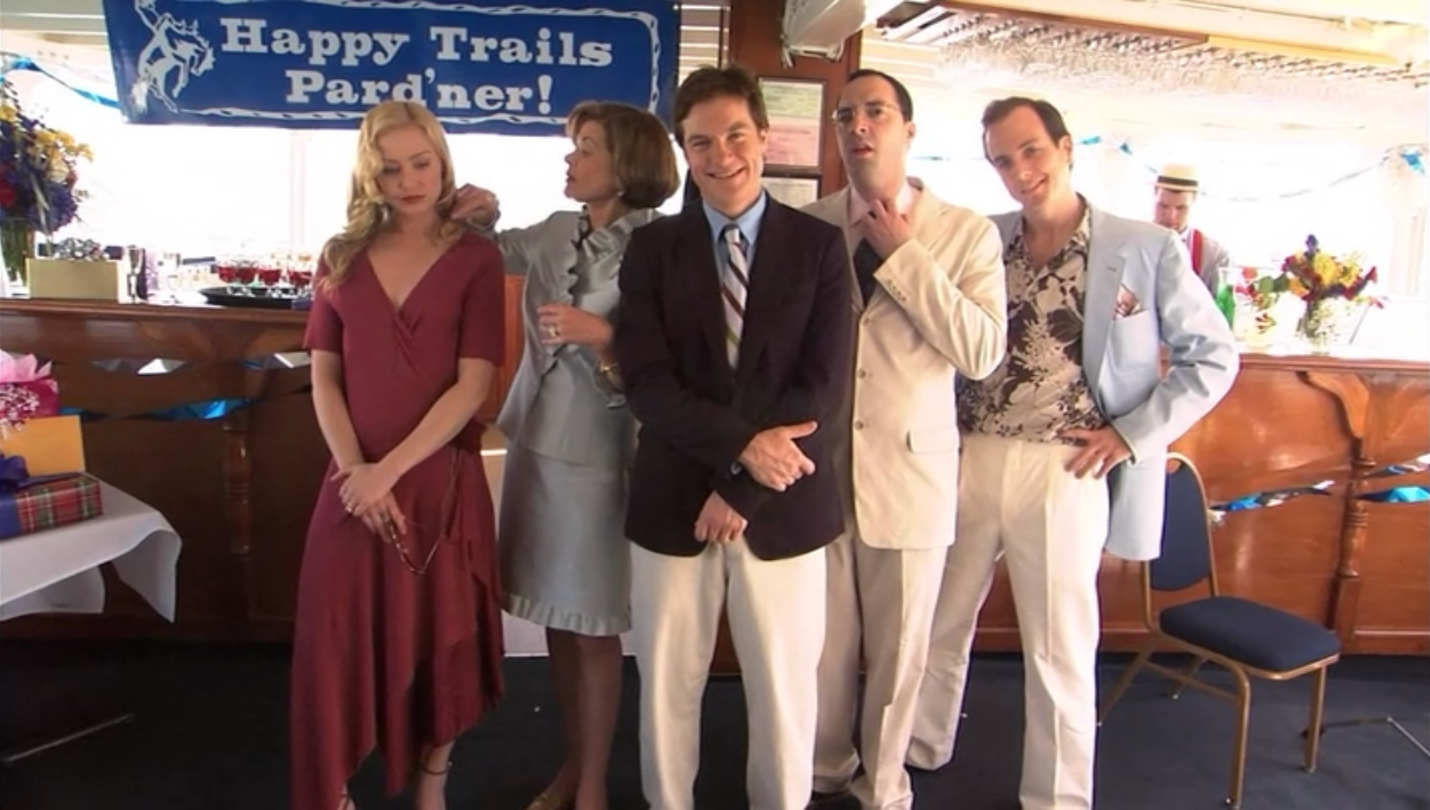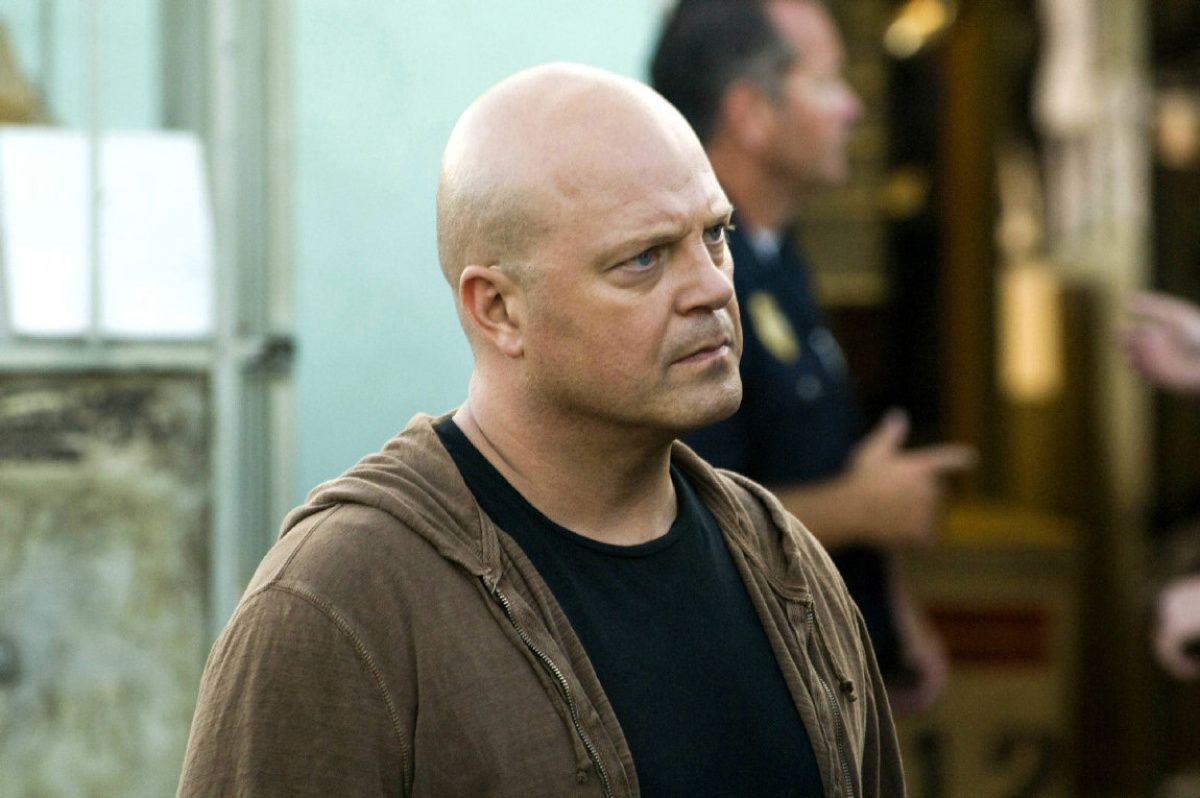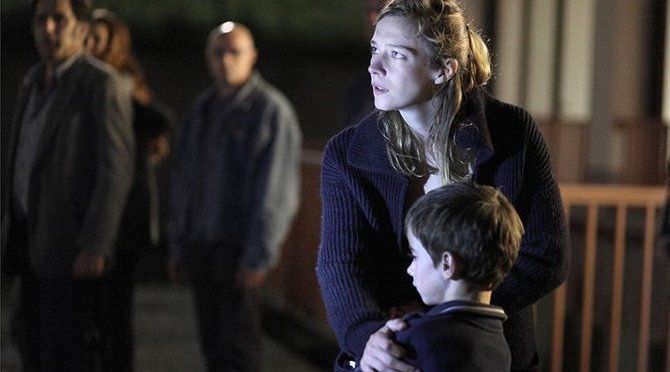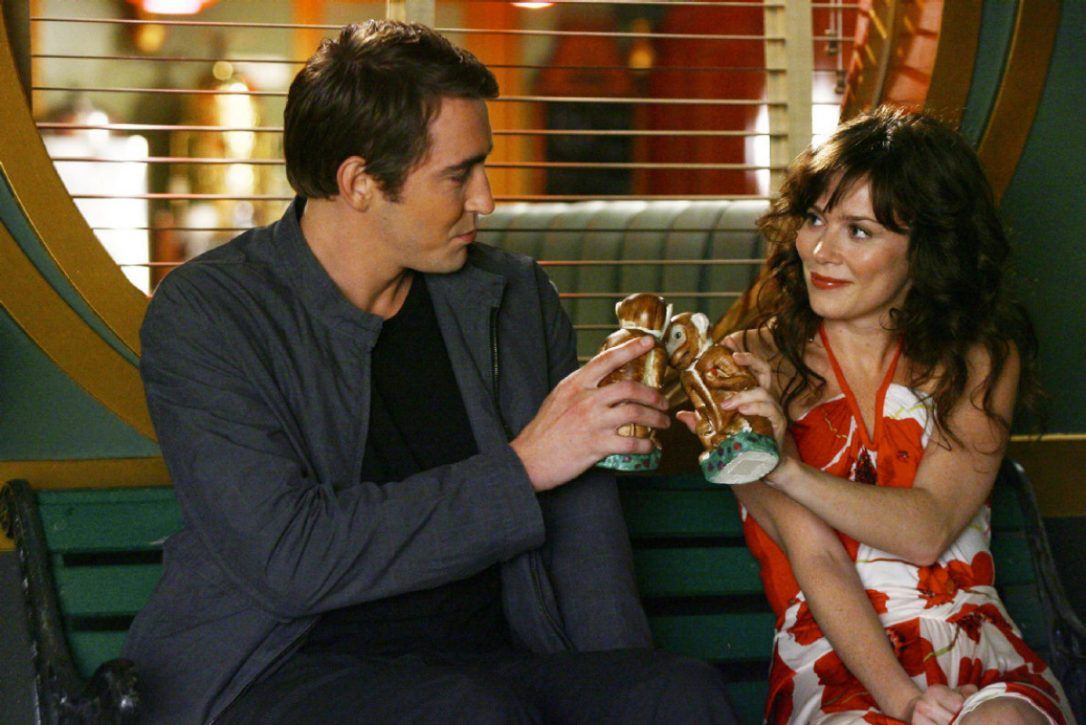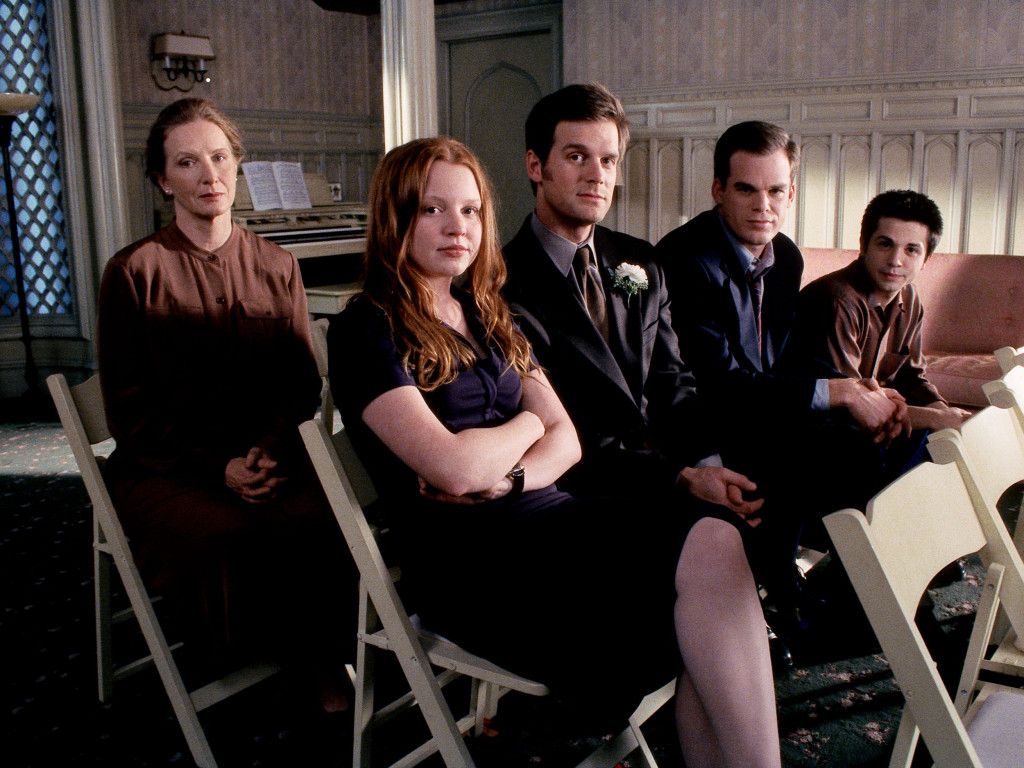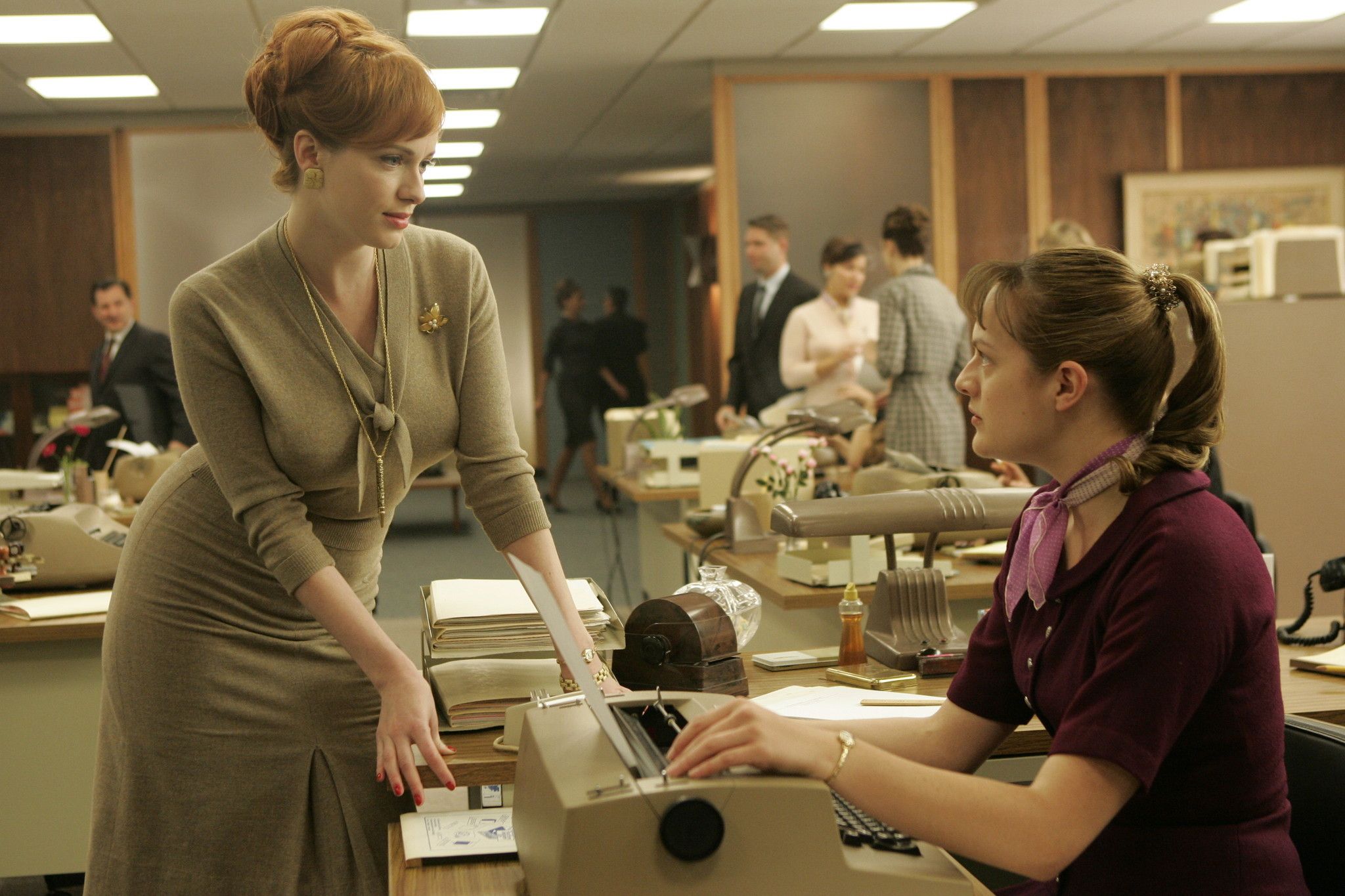While the TV landscape has changed significantly over the last few decades, by and large, pilots are still a vital key to a show’s future success. A pilot doesn’t necessarily have to be great, but it does need to show promise. Comedy pilots are notoriously tricky to pull off as it usually takes a few episodes to find the characters, but there’s usually something in that pilot that hints at greatness to come (see: The Office, Parks and Recreation). For dramas, it’s all about setting the stage and ending with a reason to tune back in the next week. Some drama pilots are great but subsequently fail to deliver on the intriguing promise that they set up, and viewers will jump ship quickly if you can’t maintain the high level of quality in your next few episodes.
And while some networks have eschewed pilot season altogether in favor of just ordering a show straight to series (see: House of Cards, True Detective), there’s still nothing like tuning into the first episode of a TV series and being handed a spectacular hour or two hours of storytelling.
As we currently live in the Second Golden Age of Television, there have been a number of memorable pilots since the year 2000. As such, we’ve culled together a list of the best of the best of the 21st century thus far—pilots that stood out for their ingenuity, artfulness, or maybe just happened to give viewers something wholly unique. Not all of these pilots resulted in great series, but regardless of what followed, they served as spectacular introductions to a world, to new characters, and to inventive storytelling.
Without further ado, Adam Chitwood and Allison Keene present the 17 best TV pilots of the 2000s so far.
'Lost'
Network: ABC
Date Aired: September 22nd and 29th, 2004
Director: J.J. Abrams
The pilot for Lost is one of the best pilots in television history. The ABC series materialized notoriously quickly, with Damon Lindelof and J.J. Abrams creating the characters while simultaneously casting the ensemble for this twist on the “stranded on a deserted island” format. Indeed, ABC was so doubtful of the project that the only reason they gave them so much money for the pilot (the most expensive ever made at that time) was because they felt they could air it as a TV movie and be done with it.
But in practice, this two-hour pilot is a stunning piece of filmmaking that introduces the eerie world of Lost in highly engaging fashion. It sets up this massive ensemble in an intriguing way, establishes rules (or lack thereof) for the strange goings-on on the island, and sets up the central conflicts of the characters with what would become a hallmark of the series: the singular POV flashbacks. And that ending, with the group learning that the mysterious looping transmission has been going for 16 years, is the epitome of a well-executed cliffhanger. Moreover, mysterious aspects of the show are set up in this pilot (like the smoke monster) that Lindelof and Abrams only had basic ideas of, but were able to blossom into fulfilling series-long mysteries.
Whatever your feelings about the series finale, it cannot be denied that the Lost pilot is one of the most memorable pieces of television history. Ah, the joy of discovery. – Adam Chitwood
'Studio 60 on the Sunset Strip'
Network: NBC
Date Aired: September 18, 2006
Director: Thomas Schlamme
Studio 60 on the Sunset Strip is a prime example of a series failing to live up to the promise of its pilot. The show served as the highly anticipated follow-up to Aaron Sorkin’s masterful The West Wing, so all eyes were on this prestigious (and expensive) hourlong show about the backstage goings-on at an SNL-esque sketch series. The pilot is classic Sorkin, starting off with a brilliantly executed inciting event that evokes the on-air meltdown from Network, which subsequently serves to create the gap for producer/director Danny Tripp (Bradley Whitford) and whip-smart, self-loathing addict writer Matt Albie (Matthew Perry) to rejoin the series-within-a-series. The chemistry between Whitford and Perry is off the charts, and the momentum of this first episode zips along under the direction of Sorkin’s West Wing cohort Thomas Schlamme. It’s an incredibly exciting piece of television that also marked a prestigious role for future Emmy winner Sarah Paulson as the fake sketch series’ most famous star, and it all came crashing down within a few episodes.
Sorkin was never really able to fully recover his swing after the pilot, though the series did have its bright spots as a whole. It was swiftly cancelled by NBC at the conclusion of the first season (it was insanely expensive due to cast/producer salaries) and funnily enough was hailed as the show to watch that season while another NBC series about a sketch show called 30 Rock debuted to little promotion or acclaim. All these years later 30 Rock is an icon of television while Studio 60 is a forgotten failure, but we’ll always have that pilot. – Adam Chitwood
'The Wire'
Network: HBO
Date Aired: June 2, 2002
Director: Clark Johnson
The Wire is a rare drama that starts out with a moment of comedy, one that came from real life and immediately establishes the series’ penchant for blending narrative and reality so closely together that its fictional stories always feel like truth. Though The Wire’s themes and focus changed dramatically in each season, the pilot episode established the show’s main drive: the push and pull between the police and the streets they are supposed to protect and serve. Instead of going by the book and offering up a clear procedural, though, The Wire introduces two very interesting characters in Jimmy McNulty (Dominic West) — a rogue cop who thinks he’s the smartest guy in the room — and a man who might actually be the smartest guy in the room, Stringer Bell (Idris Elba), a kingpin drug dealer who takes business classes.
McNulty is chaos and Bell is order, at least for awhile, and their interactions in the pilot already hint that David Simon created a very, very different kind of cop show, one that shows all facets of the War of Drugs. The pilot also introduces an addict, Bubbles, as well as several young drug dealers who live in and around public housing, all against a backdrop of Baltimore rarely seen by tourists or visitors. And yet, it could almost be any American inner city; that is The Wire’s mastery of the universal through the specific. And it all kicks off with a great episode for one of television’s finest series. — Allison Keene
'Breaking Bad'
Network: AMC
Date Aired: January 20, 2008
Director: Vince Gilligan
Breaking Bad is the rare TV series that seemed to get better with each season, but that doesn’t mean its first episode is its worst. The pilot, written and directed by Vince Gilligan, begins in striking fashion with Bryan Cranston driving an RV like a bat out of hell in nothing but his tighty whities before flashing back to the events that start this story, with Cranston as a mild mannered high school chemistry teacher. In many ways, the pilot is an encapsulation of the series to come—how can a man so harmless get himself in such a ridiculous situation? Gilligan toys with that question by keeping viewers invested, curious to find out just how all of this happened, and it’s a narrative device that would continue throughout the show’s run by teasing some event or image from the future to up the ante so to speak.
Visually Gilligan establishes a palette unlike anything else on TV, highlighting the stark New Mexico landscape with flashes of color here and there. Right out of the gate, Breaking Bad was something very, very different. — Adam Chitwood
'How I Met Your Mother'
Network: CBS
Date Aired: September 19, 2005
Director: Pamela Fryman
Making a good comedy pilot is hard. If you go back and watch the pilots for some of the most successful comedies of all time, they’re usually not that good. In the case of Friends, some of the characters are entirely different from what they would become over the course of the first season. Indeed, the key to sitcom is chemistry, and it takes trial and error to figure out the best mix for your ensemble. But in the case of How I Met Your Mother, the show had a silver bullet: a serialized hook.
Most sitcoms simply exist on the idea of a situation (hence the name situational comedy), but How I Met Your Mother began as an idea of a plot device. Specifically, that in the future a father is telling his children the story of how he met their mother, with the show itself taking place in “the past”. However, the pilot quickly pulls a bait-and-switch (which would infuriatingly turn out not to be much of a bait-and-switch in that awful series finale) by setting up Robin (Cobie Smulders) as the primary love interest of our protagonist Ted (Josh Radnor), only to conclude by saying, “And that’s how I met your aunt.”
This episode-ending zinger isn’t just a snappy reveal, but also sets up the rules of the How I Met Your Mother universe so clearly and cleverly. Viewers understood that they’d have to pay close attention to the details of the story to pick up hints about how all these characters fit into the “present day” narrative, all the while the talented ensemble made this group of friends an easy-to-love bunch. – Adam Chitwood
'The Walking Dead'
Network: AMC
Date Aired: October 31, 2010
Directed by: Frank Darabont
While The Walking Dead has since perfected the art of spinning one’s wheels, it got off to a tremendous start with a purely cinematic pilot. Writer/director Frank Darabont works his magic by introducing this “zombie series” as a pretty straightforward character/cop drama for the first 10 minutes or so. In a stroke of brilliance, he introduces two of our main characters in a pre-zombie infested world, only to use Rick Grimes’ coma to smash cut past the emergence of the zombie epidemic. As a result, Darabont is able to skip straight to the aftermath with some terrifying horror filmmaking, isolating Rick in a world he no longer recognizes. The pacing is terrific, the single POV serves to keep the audience on its toes, and the first touches of Greg Nicotero’s spectacular zombie makeup are truly jaw-dropping. The episode concludes with one hell of a set piece, wrapping things up in a tonally and thematically satisfying manner, all of which only serve to underscore the loss the series felt when Darabont left. But we’ll always have that pilot. – Adam Chitwood
'Homeland'
Network: Showtime
Date Aired: October 2, 2011
Director: Michael Cuesta
Nearly a month after the 10th anniversary of 9/11, the world wasn’t exactly asking for a TV series about global terrorism, but Showtime delivered one in the form of Homeland. However, despite the fact that the show hailed from 24 executive producers Howard Gordon and Alex Gansa, Homeland proved to be much more thoughtful and introspective than that vengeance-filled Fox series, setting up a mystery in the pilot that would tee-up one of the best seasons of television history. We can argue the quality particulars of subsequent seasons, but Homeland’s pilot elegantly establishes a thriller narrative in which Claire Danes’ CIA officer is investigating whether a rescued soldier has been turned or not. And that ending, with Brody turning to the Capital building, sent shivers down every viewer's spine. – Adam Chitwood
'Justified'
Network: Fox
Date Aired: March 16, 2010
Director: Michael Dinner
One of the best written series in all of TV, Justified adapted the work of Elmore Leonard into the story of a modern lawman in Kentucky who was pulled between his rogue notions of justice and his family’s criminal activities. But Justified’s pilot — which really helps us know who Raylan Givens (Timothy Olyphant) is as a person not through exposition but by seeing it — also sets up the series’ most important relationship dynamic: that between Raylan and his old coal-digging buddy Boyd Crowder (Walton Goggins). Boyd, who was supposed to die in the pilot, was just too good of an antagonist and a foil to waste, and the show never did take his presence for granted.
But Justified’s pilot also establishes an authentic Southern tone that embraces both the city ways of Lexington and the redneck machinations of the hill counties. It was, and remains, a unique setting for a series, one that can be hard to pull off. But the series’ exceptional cast make you feel like you’ve known them — or people just like them — for a long time. Balancing action with a cool humor, Justified’s premiere promises plenty of action both on and off books for U.S. Deputy Marshall Givens, and leaves you knowing somehow that his hat is going to become iconic (it did). — Allison Keene
'Battlestar Galactica'
Network: Sci-Fi Channel (now Syfy)
Date Aired: December 8, 2003
Director: Michael Rymer
I’m counting the Battlestar Galactica miniseries as the series’ true premiere, because it was originally meant to be a backdoor pilot to gauge interest in this remake of the 1978 series. I remember sitting down to watch maybe an hour of it, and four hours later, I had essentially become one with the couch, acknowledging I would have to finish the series before I moved again (Portlandia agrees).
Even for those who aren’t sci-fi diehard, Battlestar’s miniseries completely captured viewers with its action and strong character development, with a fascinating premise about humanity versus Cylons, who were revealed to have taken a human form rather than a mechanical exterior like in the past (making it a mystery who else might end up being one). That theme played both straight and as a metaphor for otherness, and the miniseries immediately set up an expansive yet wonderfully intimate view of humanity on the run through space, with the enemy hidden all around them. — Allison Keene
'Friday Night Lights'
Network: NBC
Date Aired: October 3, 2006
Director: Peter Berg
Turning feature films into TV shows is not usually a great idea, but Friday Night Lights is certainly one of the biggest exceptions to the rules. The pilot, which was written and directed by the feature film’s director Peter Berg, establishes a tone, a vibe, a world that viewers would quickly fall in love with. There’s a very lazy version of Friday Night Lights to be made, but this isn’t it. The pilot quickly establishes Dillon, Texas as a place so real you can almost smell it, with a bevy of unbelievably relatable teenagers filling out the ensemble. The pilot’s tonal mix of funny, sincere, and emotional would subsist throughout the series, and it’s best exemplified by the subversion of expectations as Jason Street—establishd in the pilot as the star quarterback and therefore our untouchable protagonist—ends up in the hospital as a paraplegic. Clear eyes, full hearts, can’t lose. – Adam Chitwood
'The O.C.'
Network: Fox
Date Aired: August 5, 2003
Director: Doug Liman
The pilot for The O.C. established three things that would remain true throughout the ups and downs of the series: the chemistry of the cast, the smart and snarky dialogue that defined the show’s tone, and the fantastically chosen soundtrack. The drama-filled pilot keeps things fast-paced and engrossing, and for the young adults watching it at the time it was instantly clear this was a show that could manage to capture real emotions in its heightened-reality setting.
At its heart, The O.C. explored the inversion of Ryan Atwood (Ben McKenzie) being a kid from the wrong side of the tracks who was still inherently cool, while Seth Cohen (Adam Brody) was a privileged outcast. The interactions between them, and what it revealed about wealthy Newport society (which afterwards produced so, so much reality television) was something the show explored well in its first seasons before tapering off. But looking back at those relationships in the excellent premiere, you’ll see that when it was at its best, the show never strayed far from them. “Welcome to The O.C., bitch!” — Allison Keene
'Arrested Development'
Network: Fox
Date Aired: November 2, 2003
Directors: Anthony Russo & Joe Russo
You won’t find many comedy pilots on this list, because comedy pilots (especially on broadcast networks) tend to be notoriously bad. Even if the series ends up being great, the pilot has to be so broad that it’s hard to be both funny and a part of the larger story in a meaningful way. Arrested Development, however, came out of the gate fully formed and firing on all cylinders. Though it of course got better and better (with deeper and even more insanely layered jokes) as it went on, its pilot managed to pull off having a narrator, establishing a story without obvious resolutions, and being very, very funny.
In some ways, the shows hinges on a reversal of the parable of the prodigal son, where in this case the son is the only sane one in a messy family who rely on him to save them. The pilot also sets up a unique series that caught attention thanks to the strong writing, an exceptional cast, and a confident style that served the series throughout its run. — Allison Keene
'The Shield'
Network: FX
Date Aired: March 12, 2002
Director: Clark Johnson
Originally called Rampart when it was in development (based loosely as it was on the LAPD scandal of the same name), the FX pilot for The Shield capitalized on the burgeoning antihero trend by introducing us to a band of rogue police officers led by the brutish Vic Mackey (Michael Chiklis), and ends with a violent twist.
There are aspects of the pilot’s style that look a little dated now, but the story — which examines the dilemma of a new police Captain trying to keep his department clean while also wanting to see results thanks to Mackey’s methods — is as relevant now as it ever was, and maybe even more so. While we don’t get a sense of the other characters as much as Mackey in this first hour, the pilot has a strong sense of the tone it wants to establish, as it provides a muddled moral compass that leaves viewers fascinated to find out more about this dark world. — Allison Keene
'Les Revenants'
Network: SundanceTV
Date Aired: October 31, 2013 (U.S. premiere)
Director: Fabrice Gobert
The intensely atmospheric French series Les Revenants starts as a tale of the undead, but in a way we had not (at the time) seen before. A young girl who died many years before comes back without decay, and is looking to eat sandwiches, not flesh. She doesn’t remember what happened, or why people are acting strangely towards her. Others soon return as well, quietly and casually, including one strange little boy who doesn’t speak. Later, a violent act rips through the otherwise slow proceedings and starts uniting the stories together, while one of the returned’s stories (of the day of her death) is revealed to viewers through another act of violence that is jaw-dropping.
The hour concludes with two major twists that intensify the mystery of why the undead are returning, yet also gives space to the complicated emotions of having someone return as they were from the past into a present that isn’t ready for them. There’s joy, confusion, revulsion, anger, and heartbreak, all of which is laid out cooly in the show’s beautifully directed premiere, aided by a fantastic soundtrack by Mogwai. — Allison Keene
'Pushing Daisies'
Network: ABC
Date Aired: October 3, 2007
Director: Barry Sonnenfeld
God bless Bryan Fuller and his wonderfully weird TV show ideas. Pushing Daisies had to convince network audiences to watch a show about a handsome pie maker in a candy-colored world (not a problem) who could touch people to bring them back from the dead (getting weird), but then if he touches them again they die (ok …) and if he doesn’t touch them a second time then somebody else dies (getting even weirder). And, that all of this is important for police work because now he can question dead victims and find out who killed them (interesting!) but — twist — his childhood crush just died in a weird way and so he brings her back to life (aww) but can’t let her go, which means someone else dies instead (errr) and he can never touch her ever again. What. The. Hell. Deliciously bizarre!
That’s Pushing Daisies’ pilot, and it’s absolutely fantastic. The show masqueraded as a procedural, which was fine, but its heart was always with the pie maker (Lee Pace) and the girl he loved (Anna Friel), but could never touch. The set dressings and costuming were to die for (even twice!) and the cast was almost too perfect. Unfortunately, the premise was a little too weird for most, but Fuller’s magical fantasy world was, from the outset, able to marry its unbelievably fun exterior with a darker current running just underneath the surface that mixed together into something truly special. — Allison Keene
'Six Feet Under'
Network: HBO
Date Aired: June 3, 2001
Director: Alan Ball
Throughout its run, Six Feet Under’s episodes all began with a death that usually set the tone or the theme for the hour that was to come. Its premiere is no different, although it’s also the most personal and jarring. The death of the family’s patriarch sets things into motions for the Fishers, who run a funeral home in Los Angeles, by bringing home their eldest son Nate (Peter Krause), who has never wanted to anything to do with the family business. The relationships established in the premiere continue for five full seasons — others come and go, but the Fishers remain. Well, mostly.
The most important thing is that the premiere sets up a crucial journey, one where Nate must face not only his family but death itself. It’s a path that anchors the series and helps give it its beautiful depth. But it’s also part of a darkly comic episode where the youngest daughter tries crystal meth just before she finds out about her father’s death, and has to experience it while tweaking. Meanwhile, their father’s ghost appears to each family member as a projection of their feelings about him, and to reveal to us where they are in their grieving. It proved immediately that this isn’t going to be a normal family drama, and it wasn’t. It was exceptional. — Allison Keene
'Mad Men'
Network: AMC
Date Aired: June 19, 2007
Director: Alan Taylor
Plenty of new TV shows try to throw in a big cliffhanger or twist at the end in order to get viewers to keep watching. Some offer enough of a hook to return, but some swing for the fences with a big reveal that fizzles out within a few episodes. Mad Men, however, concludes with one hell of a twist that works because it reveals a dynamic that would play out for the rest of the series. Jon Hamm’s Don Draper is a man of mystery, being introduced to audiences as this suave, ladies’ man advertising executive only to discover that he also lives the life of a suburban husband and father. The episode as a whole is a phenomenally crafted piece of writing, setting up the sexual and racial politics that loomed large in 1960 while also fleshing out Don, Roger, Peggy, etc. as compelling characters. Mad Men is not a show that needed a few episodes to find its footing. It was a home run right out of the gate. – Adam Chitwood

